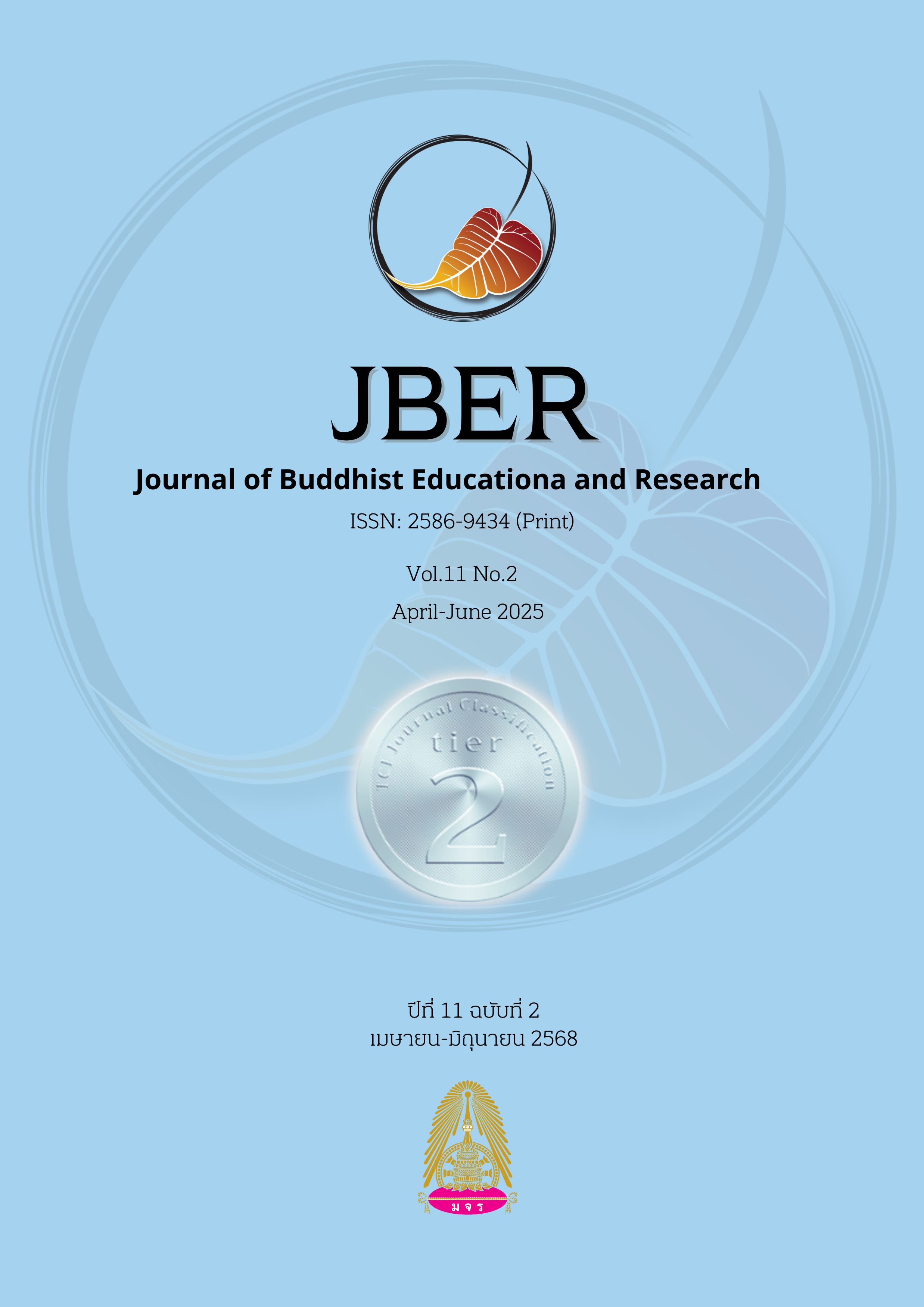The Development Model of Administrative Competencies Based on the Four Bala Principles for Administrators of Phrapariyattidhamma Schools, General Education Department, Area 7
Keywords:
Model, Administrative Competencies, Four Bala PrinciplesAbstract
The research on "The Development Model of Administrative Competencies Based on the Four Bala Principles for Administrators of Phrapariyattidhamma School, General Education Department, Area 7" aims to 1) study the priority needs for developing administrative competencies based on the Four Bala principles for school administrators; 2) create a development model for these competencies; and 3) evaluate the developed model. The mixed-method research approach was utilized, involving a sample of 280 school administrators and teachers. Tools used included questionnaires, semi-structured interviews, and evaluation forms for feasibility, appropriateness, and utility. The research results are as follows: 1. The necessary development of administrative competencies based on the Four Bala principles for the school administrators identified four aspects, ranked by PNImodified from highest to lowest: self-development, teamwork, service excellence, and achievement orientation. 2. The quality development model for administrative competencies based on the Four Bala principles includes 1) model name, 2) principles and objectives,3) implementation methods, 4) targets for success, and 5) mechanisms driving success. 3. The evaluation of the development model for administrative competencies before its implementation showed its process characteristics are highly feasible, appropriate, and beneficial, with all components rated at the highest level.
References
กองพุทธศาสนศึกษา. (2566). สถิติข้อมูลโรงเรียนพระปริยัติธรรม แผนกสามัญศึกษา. Retrieved January 3, 2023, from https://deb.onab.go.th/th/content/page/index/id/6681
บุญชม ศรีสะอาด. (2553). การวิจัยเบื้องต้น (พิมพ์ครั้งที่ 8). สุวีริยาสาส์น.
พระธรรมปิฎก (ป.อ. ปยุตฺโต). (2546). พจนานุกรมพุทธศาสตร์ฉบับประมวลศัพท์ (พิมพ์ครั้งที่ 11). โรงพิมพ์มหาจุฬาลงกรณราชวิทยาลัย.
พระพรหมคุณาภรณ์ (ป.อ. ปยุตฺโต). (2546). พจนานุกรมพุทธศาสตร์ ฉบับประมวลธรรม (พิมพ์ครั้งที่ 12). กรมการศาสนา.
ภวัต นิตย์โชติ. (2560). การพัฒนาสมรรถนะตามหลักพละ 4 ของบุคลากรปกครองส่วนท้องถิ่นในจังหวัดสงขลา [ดุษฎีนิพนธ์พุทธศาสตรดุษฎีบัณฑิต, มหาวิทยาลัยมหาจุฬาลงกรณราชวิทยาลัย]. บัณฑิตวิทยาลัย.
ภัคควลัณชญ์ สาระลัย. (2558). การบริหารและพัฒนาหลักสูตรสถานศึกษาปฐมวัยเพื่อเตรียมความพร้อมสู่ประชาคมอาเซียน โรงเรียนเทศบาลบูรพาพิทยาคาร สังกัดเทศบาลเมืองมหาสารคาม [วิทยานิพนธ์ครุศาสตรมหาบัณฑิต, มหาวิทยาลัยราชภัฏมหาสารคาม]. บัณฑิตวิทยาลัย.
มหาจุฬาลงกรณราชวิทยาลัย. (2539). พระไตรปิฎกภาษาไทย ฉบับมหาจุฬาลงกรณราชวิทยาลัย. โรงพิมพ์มหาจุฬาลงกรณราชวิทยาลัย.
สมาน แก้วคำไสย์. (2559). รูปแบบการพัฒนาสมรรถนะการปฏิบัติงานของผู้บริหารสถานศึกษาขั้นพื้นฐาน สังกัดสำนักงานเขตพื้นที่การศึกษาประถมศึกษาร้อยเอ็ด เขต 1 [วิทยานิพนธ์ปรัชญาดุษฎีบัณฑิต, มหาวิทยาลัยราชภัฏร้อยเอ็ด]. บัณฑิตวิทยาลัย.
Downloads
Published
How to Cite
Issue
Section
License
Copyright (c) 2025 Journal of Buddhist Education and Research (JBER)

This work is licensed under a Creative Commons Attribution-NonCommercial-NoDerivatives 4.0 International License.





